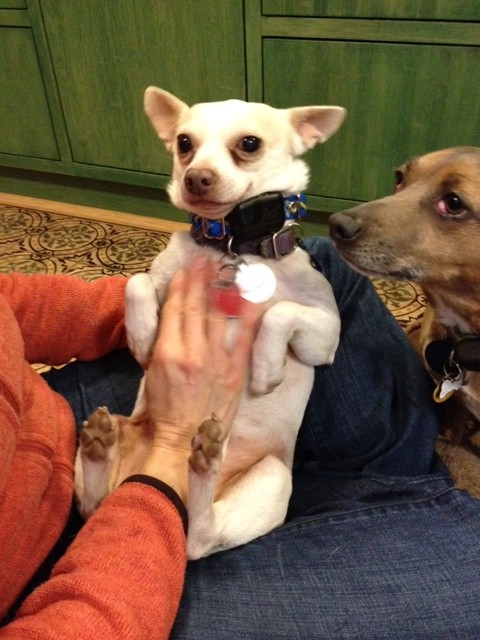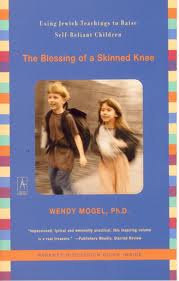In elementary school, I was a social outcast. I was not alone, of course. I was the bespectacled, nose-dripping outcast, but there were also the fat outcast, the too-tall outcast, the too-short outcast, and a boy and a girl who were outcasts apparently only because of their race. My class was extremely hierarchical, with three class queens and three kings, and we stayed the same group for five years, with the same kings and queens and the same outcasts.
A few days ago I was listening to Tara Brach’s True Refuge. The author was telling the story of Amy, who had a difficult childhood with a mother who neglected and rejected her. In her sessions with Tara, Amy managed to experience the anger which she had kept in check for years and to express the fears beneath: of never finding love, of not being worthy of love, of being alone in the world. Tara called it experiencing soul sadness.
In that moment, for a split second, I saw myself as a bleeding, mucusy, open wound, a whole-body sore. And I realized: This is how I walk around. This is what I am hiding. In my mind’s eye, I instantly knew when it started. Elementary school.
We switched seats that day, and the teacher partnered me with Matat, one of the class queens. In front of the class, Matat said: “I don’t want to sit next to her.” But the teacher insisted, and as Matat slid into the seat next to mine, she whispered: “Stop sneezing and wiping your nose like that.”
Other than that split-second knowledge that I was a trembling, bleeding, mucusy, open wound, I had not been able to feel any emotion about this event. It was as though I had no feelings about it at all. I knew I needed to heal the wounded body and clear the hurt from my heart by forgiving Matat, but I could feel no real hurt and no compassion for her, and without any emotions, I didn’t know if it was possible to forgive at all.
I decided to try a forgiveness meditation (also from Tara Brach’s book). I settled myself into my cushion and slipped into my body thirty years ago: thick glasses covering half of my face, light brown hair twisted into two long but messy braids, a drippy, red nose, and a skinny body. And there was Matat, refusing to sit next to me, and a heaviness choked my throat.
All I wanted was to be loved, to be appreciated. Scooting down in the chair, I held the sneezes back and tried hard not to wipe my nose before absolutely necessary. There was no room for me to exist. I could feel the weight on my back (ah, said a voice in my grown-up head, that’s when you became a turtle), in my throat, in my heart.
Holding that little girl with compassion, sending her love, I began to murmur a lovingkindness meditation. May you be happy, may you be well, may you be filled with lovingkindness and joy. Then, realizing 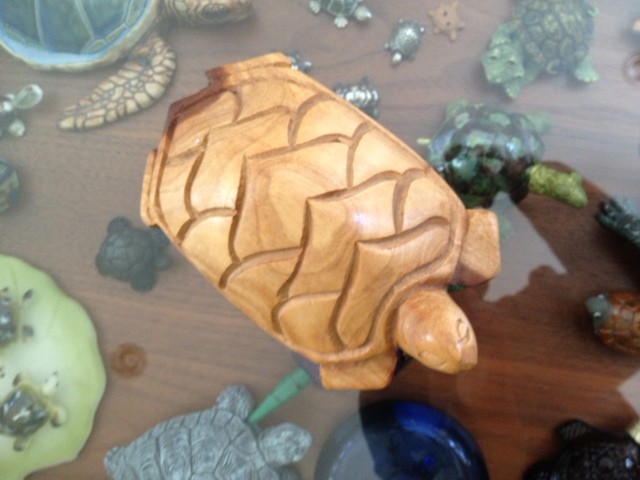 that she is me, I started anew: may I be happy, may I be well; may I be filled with compassion for myself and others.
that she is me, I started anew: may I be happy, may I be well; may I be filled with compassion for myself and others.
Matat means gift in Hebrew. As I went through the meditation, I realized that by forgiving her, I am giving myself a gift. A gift of love.
I hug to my heart the wounded little girl I was thirty years ago and begin to let go of rejection and shame. As space clears in my heart, and I allow myself to expand into it, healing all hurt. I hold myself as a child and whisper: I am here; I love you; I appreciate your wisdom and originality, your quirky sense of humor, the doodles on your notebook, and the used tissues thrown about everywhere.
Then, I am ready:
I feel the harm that has been caused, Matat, and to the extent that I am able, I forgive you.

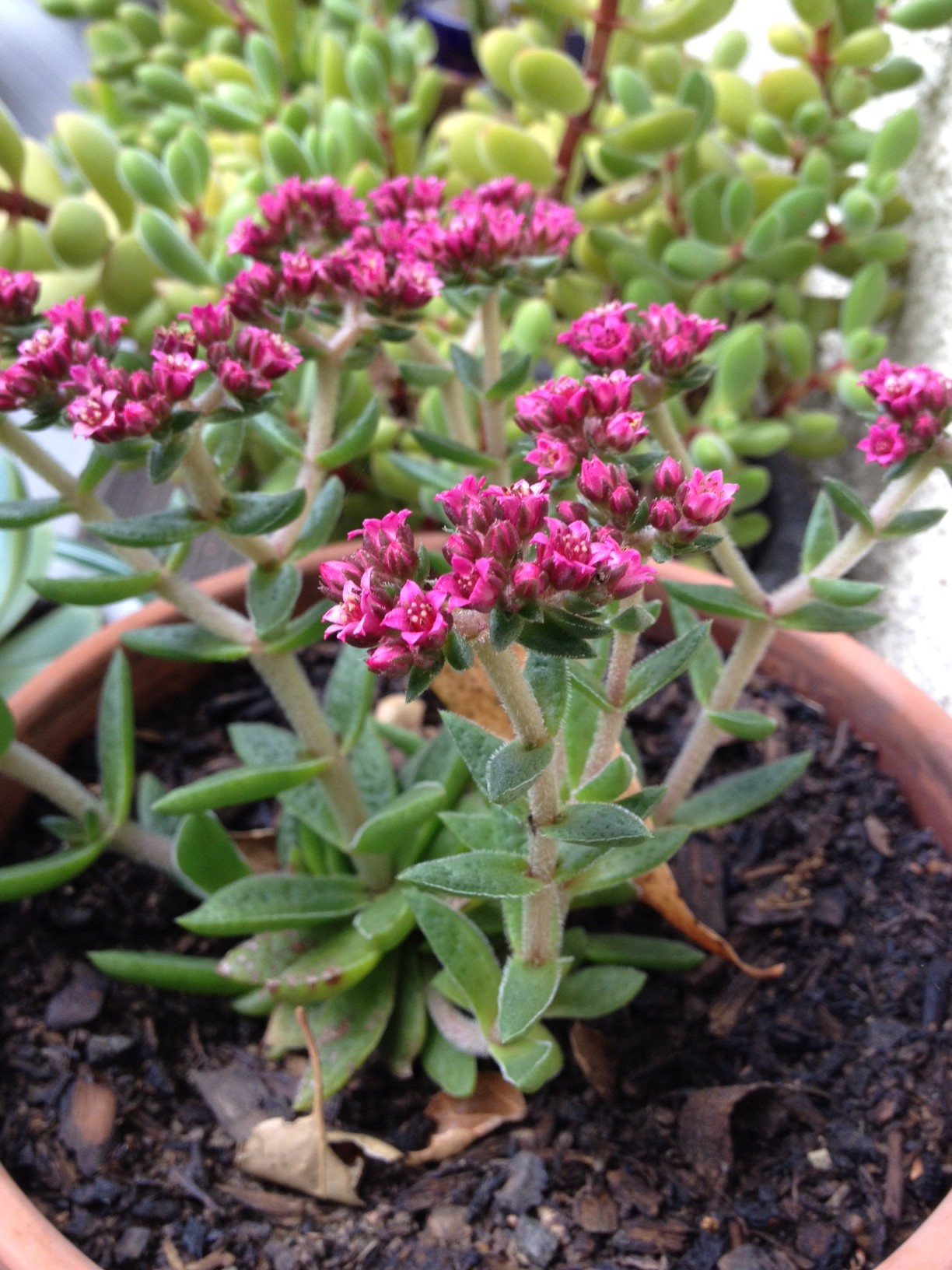
 We have a saying in Israel: “The shoemaker goes barefoot.” As a child, I found this saying curious. Why, I wondered, does the shoemaker go barefoot? Does he (let’s assume for a moment he is a man) have no time to make himself shoes? Or perhaps not enough materials? Or is he so poor that he cannot afford to have even the barest pair of shoes? I imagined the shoemaker in his dark den, bent over chicken-skin shoes with cardboard soles, his feet bare and curled beneath him. He could never leave his den — I knew this with certainty — because where would he go without shoes?
We have a saying in Israel: “The shoemaker goes barefoot.” As a child, I found this saying curious. Why, I wondered, does the shoemaker go barefoot? Does he (let’s assume for a moment he is a man) have no time to make himself shoes? Or perhaps not enough materials? Or is he so poor that he cannot afford to have even the barest pair of shoes? I imagined the shoemaker in his dark den, bent over chicken-skin shoes with cardboard soles, his feet bare and curled beneath him. He could never leave his den — I knew this with certainty — because where would he go without shoes?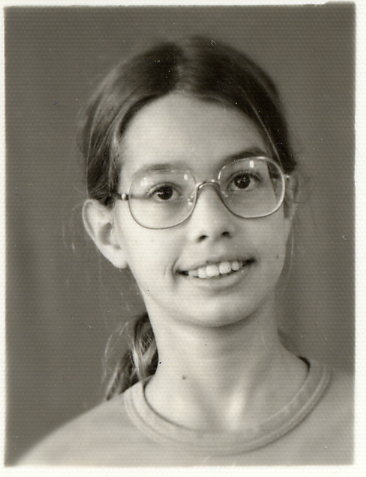 of my life, and yet it seems, ironically, that today I first realized just how near sighted I am. Till today, and despite boasting my own prescription of over eleven, I pegged my near sightedness an esthetic problem. Up to age eighteen, with an over-large pair of spectacles perched on my nose, I was the ugly duckling. I became more of a swan at eighteen after I was fitted with contact lenses. Today, however, struck with the lightning realization that my eyes are flawed, I understood for the first time that my poor vision is not just about beauty, but a body blot.
of my life, and yet it seems, ironically, that today I first realized just how near sighted I am. Till today, and despite boasting my own prescription of over eleven, I pegged my near sightedness an esthetic problem. Up to age eighteen, with an over-large pair of spectacles perched on my nose, I was the ugly duckling. I became more of a swan at eighteen after I was fitted with contact lenses. Today, however, struck with the lightning realization that my eyes are flawed, I understood for the first time that my poor vision is not just about beauty, but a body blot.